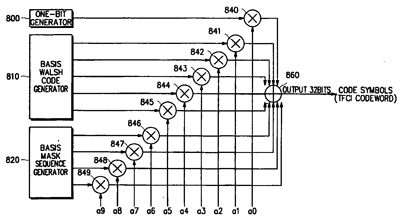On 8 December 2011, the presiding judge of the Tribunal de Grande Instance of Paris has rendered an order in the context of the worldwide battle between Samsung and Apple.

Samsung alleged that Apple’s iPhones 4S contain chips infringing its European patents No. 1 188 269 and 1 097 516, declared essential to the UMTS standard within the framework of ETSI (European Telecommunication Standard Institute), and sought a preliminary injunction against Apple.
Respondent Apple submitted that (i) Samsung’s rights with respect to the chips contained in the telephones are exhausted, (ii) it was granted a FRAND licence in accordance with article 6-1 of the ETSI IPR Policy or, at least, Samsung’s FRAND undertaking is an irrevocable offer which Samsung did not withdraw, (iii) the patents at issue are invalid, (iv) Samsung would abuse of a dominant position if an injunction were granted.
The presiding judge describes the economic as well as the judicial context of the worldwide battle.
She dismisses Samsung’s claim for a preliminary injunction based on Apple’s first argument, i.e. exhaustion on Samsung’s patent rights on the chips integrated in the iPhones 4S.
The judge first recalls that claiming the implementation of the UMTS standard means that the patents declared essential thereto are also implemented so that infringement is presumed unless it is shown that royalties are paid, that the products implementing the standard have been purchased to someone paying royalties or that the patents are invalid.
Although infringement is presumed, the judge regrets that Samsung did not demonstrate the implementation of the patented technology in the alleged infringing chips or at least demonstrate that the chips were provided by a company not licensed under its patents.
It is noted that Apple has always challenged, in the course of its discussions with Samsung to obtain a FRAND licence, that the two patents at issue were relevant to the UMTS standard.
The judge considers that the elements adduced by Apple to justify that the chips were provided by Qualcomm are sufficient at this preliminary stage.
After analysing the licence agreement between Samsung and Qualcomm dated 31 August 1993, as well as its amendments of 30 March 2004 and 1st January 2009, the judge notes that this agreement has a worldwide effect, that Qualcomm’s chips integrated in iPhones 4S are covered by this agreement and that Samsung undertakes to not enforce its patents against Qualcomm’s clients implementing its patent rights as long as such clients do not enforce their own patents against Samsung.
Although the agreement expressly indicates that it cannot be interpreted as a licence agreement, the Judge considers that this provision should be interpreted by the judge on the merits in view of the entire agreement; the judge’s opinion is that the authorisation to implement the patents should be interpreted as a licence.
The judge considers that the amendments to the licence agreement do not affect such interpretation and holds that Samsung’s letter dated 21 April 2011 sent to Qualcomm, according which Samsung intended to limit the scope of the licence granted so that it might exclude Apple, has no effect in view of Samsung’s irrevocable licence granted to Qualcomm in application of the ETSI rules.
The judge is of the opinion that Samsung not receiving royalties as a compensation for the implementation of its patents is irrelevant as Samsung benefits from Qualcomm’s technology as a result of the licence.
Samsung was also claiming that its rights could not be exhausted because the iPhones 4S are assembled through an intermediary to which Qualcomm’s chips are supplied.
But the court, noting that Qualcomm acknowledges supplying Apple with said chips, such that the chips were integrated in products by Qualcomm’s clients according to the licence agreement, found irrelevant the use of an intermediary to assemble the chips in the phone.
Therefore the judge holds that the infringement is not likely and that the condition provided by article L. 615-3 of the French intellectual property code for a preliminary injunction to be ordered is not met.
The judge orders Samsung to pay €100,000 to Apple as recovery of costs.
This decision is not based on the undertaking provided by Samsung to the ETSI when declaring that the two patents asserted against Apple were essential to the UMTS standard.
But several sentences thereof are worth noting as hints of the opinion of the judge on the effects of such undertaking and, more generally, the way the ETSI IPR policy should be construed.
The judge first declares that ETSI does not check whether the patents which are declared essential are valid and indeed essential to the standard, such that these issues may be submitted to courts.
It also states that the rules of the ETSI IPR policy according which the granted licence shall be irrevocable and the royalty rate shall be FRAND are provided to prevent the holder of essential patents from abusing a dominant position.
When assessing the effects of an amendment to the licence granted by Samsung to Qualcomm signed after the patents at issue had been declared essential to the UMTS standard, it holds that, from the date of this declaration, the licence could neither be revoked nor be limited to prevent the sale of chips to some of Qualcomm’s clients.
Finally, the judge holds that the preliminary injunction sought by Samsung against Apple is disproportionate.
Original French decision.
English translation .
Authors:
Sabine Agé, Attorney-at-law, Véron & Associés, Paris, France
Amandine Métier, Attorney-at-law, Véron & Associés, Paris, France
________________________
To make sure you do not miss out on regular updates from the Kluwer Patent Blog, please subscribe here.


